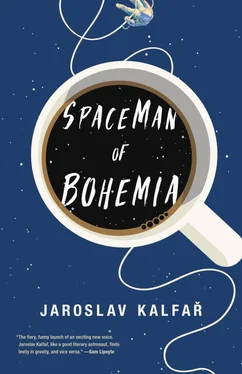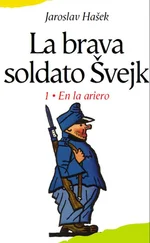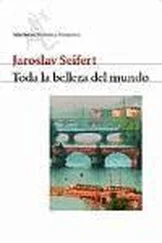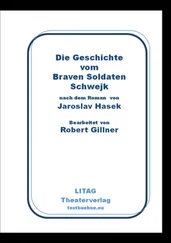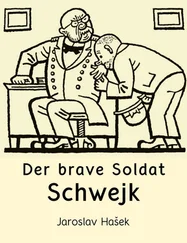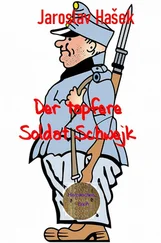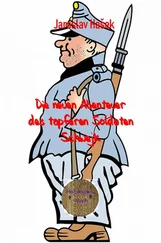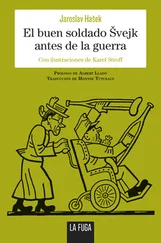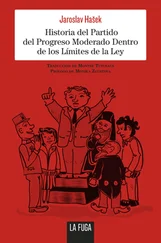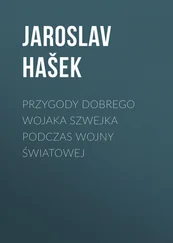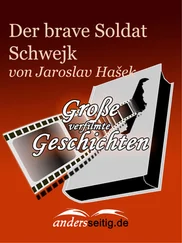Kuřák:This is the most you have opened up in here.
Lenka P:Is that all you have to say?
Kuřák:Lenka, I can’t tell you what you want. You have to arrive there yourself.
Lenka P:That’s not at all helpful.
Kuřák:Therapists are mirrors.
Lenka P:Whenever you say that, I want to hit you.
Kuřák:I apologize for upsetting you. But my verdict remains the same.
Lenka P:Fine. What I want is to get away from all of this. The reporters bugging me for interviews, my family looking at me like I should be getting ready to wear black and grieve. I want to get away from the fashion companies asking if they can pay me millions to be on their billboards. And I’m tired of looking at the face of the man I love, Dr. Kuřák, puffy from zero gravity, his voice raspy and sad, telling me those same terrible jokes he told on Earth but without the energy and flair that come with Jakub Procházka. I am tired of the doubt in his voice, betraying his thoughts— Does she still love me? When I am so far away? Does she expect the call announcing my demise so she can at last move on? I am whining, am I not? He is the one up there, and the cause is great and noble, don’t think I don’t realize that. It’s just that… Dr. Kuřák, the problem is, he never asked me. When he got the offer, he called me, and I dropped my phone into the fountain. He thinks it was out of excitement, but it was out of fear. I was paralyzed. He came home and we drank champagne. He made steak and played music for me. But the question never arose—Lenka, what do you think? Should I do this? What will it do to me, to you, to us, to the world we’ve built? Perhaps I would have said no. Perhaps he would have listened, stayed with me on this Earth, and I would have hated myself for it, but I would still have my husband. He turned me into Penelope. He made it about himself.
Kuřák:So you would have chosen to stifle his dream in order to keep him in your—what did you call it before—your contract?
Lenka P:Well, when you put it that way, I sound monstrous. Stifle .
Kuřák:There are no monsters in this room.
Lenka P:It goes back to the other things we’ve spoken about in here. He doesn’t ask. He never asked me if I wanted children—he just assumed I did because he does. It’s how he operates. He has this guilt from his childhood. He carries his father’s transgressions in a big bundle around his shoulders. He had to become an astronaut, of all things. It is noble, it’s lovely, but I don’t know if I’m willing to keep up with him while he chases redemption, like there’s some magic out there that will set him free. The resentment, it builds. And so I have to ask—I still have a good chunk of life ahead of me, and what do I want? Need. While Jakub chases his purpose and thinks She’ll just wait, always wait … what do I do?
Kuřák:I think we have arrived at the root of this, Lenka. You said you wanted to get away.
Lenka P:Yes. For a while.
Kuřák:Why can’t you?
Lenka P:Because I can’t leave him when he’s all alone, stranded, with me his strongest link to Earth.
Kuřák:But what if you just… go.
Lenka P:I can’t do that.
Kuřák:But you are no Penelope.
Lenka P:No.
Kuřák:And yet you wait. In spite of yourself. Jakub freed himself. He said good-bye to Earth. Someone theatrical would say he went off to fulfill his destiny. Yet you aren’t allowed to do the same for yourself.
Lenka P:It would kill him.
Kuřák:With all due respect, that is nonsense. You are making yourself into a hostage.
Lenka P:So, in your imagination, I just go. I go away.
Kuřák:You go and you determine what it is you want for yourself.
Lenka P:I can tell you’ve never loved anyone.
Kuřák:I have. And I have always allowed them to do whatever it is they need. It is the very basis. Not trapping one another.
Lenka P:I need to go. I need to buy things for dinner.
Kuřák:Go. Have dinner. Think.
[END]
THE GOROMPED HAD BECOME an important part of my daily routine in Carlsbad. I smoked my morning cigarettes inside, and found that if I let a bit of smoke inside the jar, the creature would become momentarily paralyzed. While it lay on the bottom of the jar, I stuck the burning cigarette against its hard belly and heard a faint, high-pitched whistle that came along with a headache. I lifted the cigarette. The Goromped’s shell had turned red. It took about five minutes for its natural hue to return, and a few more for the creature to buzz around the jar in rabid circles once again.
After my afternoon excursions around Carlsbad’s streets and attractions, I attempted other methods. Filling the jar with water did nothing. In fact, the Goromped simply kept moving in circles as the liquid engulfed its body, as if it didn’t even notice the change. When I sprayed it with insecticide, it plunged itself into the puddle and somehow absorbed all of it, lapped it up like a dog until the glass was dry. What truly seemed to bother it was laundry detergent. After I poured it inside the jar, the Goromped shot directly upwards and smashed into the lid until it bent. And again, and again. Quickly, I transferred the creature to a clean jar.
As I observed the creature, I tried to decide whether I was angry with Dr. Kuřák. There was eagerness in his support for Lenka’s leaving, but he did seem to treat her with understanding and kindness. I could not be furious with a man who was good to her when she needed it. What truly haunted me were my alleged crimes of ignorance, outlined within the session recordings as clearly as the opening arguments of prosecution. How could I so deeply misunderstand something I cared about? Those small moments in which I had wronged Lenka were now cruelly apparent. When I was in Space, I manufactured moments in my head during which I had asked whether she would allow me to go on the mission, but really these questions never came up. All was decided by me from the start. I wondered whether I had behaved like this all my life, whether such disregard for a loved one was yet another genetic legacy I carried, representing my father’s traits in full denial.
The Goromped experiments began to keep me shut inside the room for most of my days, which made the recovery seem slower, more painful. Suddenly I was aware of the soreness in my cheeks, my inability to walk without a slight limp. Outside, the sunshine touched upon the shoulders of women and men who seemed so without worries, a city of strollers without a destination. I too craved motion, but not that of a casual stroller—I wanted the thrilling speed of the Goromped.
I shrouded the jar with a black handkerchief and went outside. For the first time I made my way to the residential parts of town, the ones that belonged to neither patients nor tourists, and there I noticed a blue Ducati motorcycle leaning against a shabby house. A reasonable price tag hung around its neck. I hurried home to withdraw some money from the bag Petr had given me and I purchased the Ducati in cash, along with a helmet, from a man exposing his rotten teeth as he counted the cash. I rode out of Carlsbad and into the hills, past the forest filled with men reinforcing their winter wood supply, past teenagers sitting around a van without wheels, sniffing either paint or glue. The road was rough, filled with potholes, and I liked the vibrations it gave off. It felt as though I was working against something, making an effort. I rode through villages, caught the disapproving glares of old women sitting in front of their houses, the lustful envy of village boys working in the fields after school to afford a Ducati of their own. I escaped bewildered dogs snapping at my ankles, zoomed along miles and miles of bare potato fields, wheat fields, cornfields, the postseason desolation of the countryside. The landscape elicited a raw sense of survival: wood prepared, food hoarded, and now it was time to stay inside and drink liquor to warm the belly until the winter passed. After a full day’s ride I returned to Carlsbad, feeling hungry and already missing the smell of burning petrol.
Читать дальше
